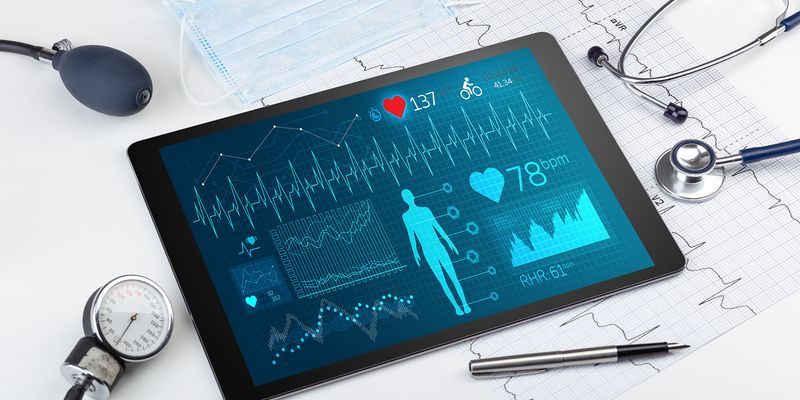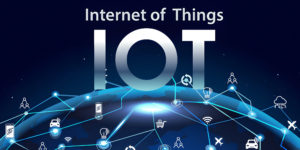
Technological advancements have ushered in a new phase of efficiency, precision, and patient care. Smart Hospital Systems, driven by state-of-the-art technologies such as artificial intelligence (AI), Internet of Things (IoT), and big data analytics, are reshaping traditional healthcare facilities into interconnected, intelligent ecosystems.
These systems are revolutionising hospital operations, enhancing patient outcomes, optimising resource utilisation, and improving staff productivity.
The integration of technology in healthcare
The infusion of technology in healthcare has been a gradual yet transformative journey. Smart Hospital Systems harness an array of interconnected devices and software applications to streamline processes, bolster communication, and deliver personalised care. From managing electronic health records (EHR) to facilitating remote patient monitoring, these systems encompass a diverse range of functionalities aimed at enhancing every facet of hospital operations.
Key components
Internet of Things (IoT): IoT devices such as wearable health monitors, smart beds, and medical sensors are pivotal in gathering real-time data from patients. This data facilitates continuous monitoring, early detection of anomalies, and proactive intervention, ultimately improving patient outcomes and minimizing complications.
Artificial Intelligence (AI): AI-driven algorithms analyse extensive healthcare data to derive actionable insights. Machine learning algorithms aid healthcare providers in diagnosing diseases, predicting patient outcomes, and recommending personalised treatment plans. Additionally, AI-powered chatbots and virtual assistants streamline administrative tasks, handle patient inquiries, and provide round-the-clock support.
Big Data analytics: The abundance of data generated within healthcare facilities presents both challenges and opportunities. Big data analytics platforms aggregate, analyse, and visualise complex datasets to identify trends, patterns, and correlations. Hospital administrators can leverage these insights to optimise resource allocation, enhance operational efficiency, and elevate patient satisfaction.
Telemedicine and remote monitoring: Telemedicine platforms enable healthcare professionals to conduct remote consultations, monitor patients’ vital signs, and deliver timely interventions irrespective of geographical constraints. Remote monitoring devices empower patients to actively engage in their healthcare journey while receiving personalised care at home, thereby reducing hospital readmissions and healthcare costs.
Benefits of Smart Hospital Systems
Enhanced patient care: Smart Hospital Systems enable healthcare providers to deliver tailored, evidence-based care tailored to individual patient needs. Real-time monitoring and predictive analytics facilitate early intervention, decreasing the occurrence of adverse events and improving overall patient outcomes.
Operational Efficiency: Automation of routine tasks, optimisation of resource utilisation, and streamlined workflows contribute to heightened operational efficiency within healthcare facilities. Smart Hospital Systems empower healthcare providers to allocate more time and attention to delivering quality patient care rather than administrative tasks.
Cost Savings: By averting avoidable hospital readmissions, reducing medical errors, and optimising resource allocation, Smart Hospital Systems facilitate cost savings over time. Additionally, remote monitoring and telemedicine services eliminate the need for unnecessary hospital visits, further reducing healthcare expenditures.
Challenges and considerations
While Smart Hospital Systems offer considerable potential, their implementation entails certain challenges. Ensuring data privacy and security, fostering interoperability among disparate systems, and addressing the digital divide are among the key considerations that healthcare organisations must navigate. Moreover, overcoming resistance to change and providing ongoing staff training present additional hurdles in the adoption of these technologies.
To sum it up
Smart Hospital Systems signify a fundamental shift in healthcare delivery, harnessing technology to optimise patient care, enhance operational efficiency, and drive cost savings. As healthcare organisations continue to embrace digital transformation, the integration of IoT, AI, and big data analytics will play an increasingly crucial role in shaping the future of healthcare. By embracing innovation and collaboration, healthcare providers can fully leverage the potential of Smart Hospital Systems to create a healthier, more connected world.
(Surjeet Thakur is the CEO and Founder of TrioTree Technologies)
Edited by Megha Reddy
(Disclaimer: The views and opinions expressed in this article are those of the author and do not necessarily reflect the views of YourStory.)










